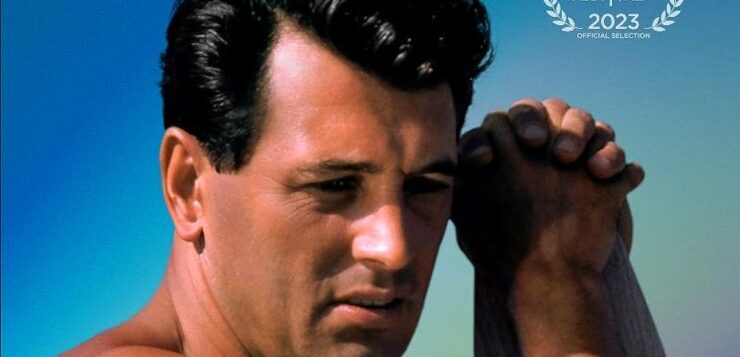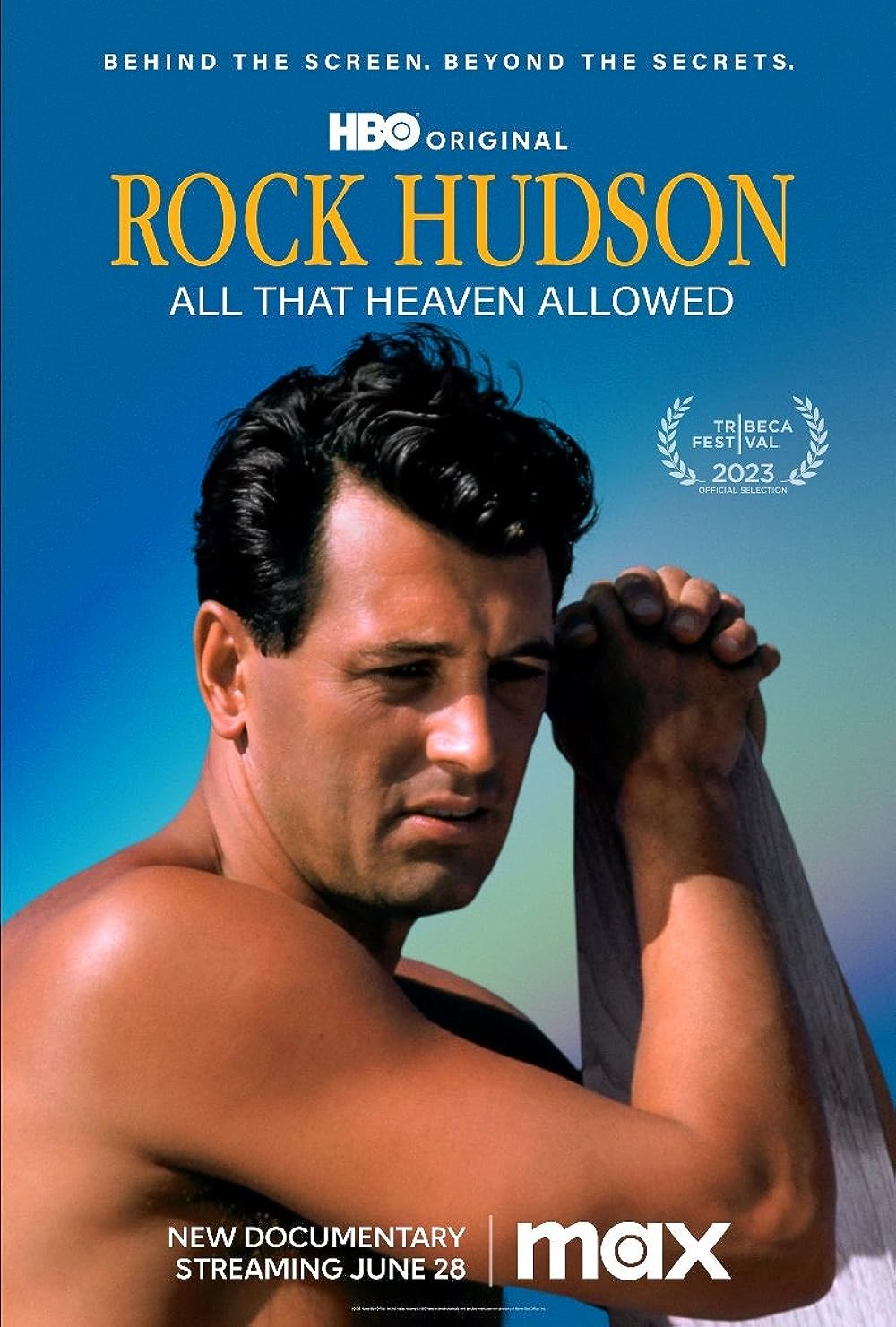ROCK HUDSON was the biggest heartthrob of midcentury cinema, once billed as the “most wanted man in America,” but also the most famous film star to die of AIDS. A new documentary, directed by Stephen Kijak, has set a critical reappraisal of his career in motion. It explores the ways in which Hudson, forced to lead a double life, was the sacrificial lamb of the studio system.
Based on Mark Griffin’s 2018 biography of the same name, Rock Hudson: All That Heaven Allowed offers us a glimpse into his career but also into the AIDS crisis. This falls on the heels of Hollywood (2020), the Netflix series in which director Ryan Murphy presented a fictionalized version of Hudson as an Illinois-born boy arriving in Tinseltown by Greyhound bus and living in secret with his Black boyfriend Archie. Kijak’s documentary wants to show how Hudson was the ultimate victim of the “celluloid closet,” as film historian Vito Russo called it back in 1981. This was the same year in which Hudson underwent quintuple bypass heart surgery due to his pack-a-day smoking and alcohol intake. In his poem “To the Film Industry in Crisis” (1955), poet Frank O’Hara refers lovingly to the movies as the “glorious Silver Screen, tragic Technicolor, amorous Cinemascope.” Glorious, tragic, amorous—Hudson checked all the boxes.
The sense that Hudson, the leading man of the postwar generation, somehow misled his fans first erupted in 1985 after he appeared in an interview alongside a squeaky-clean Doris Day, his longtime costar and onscreen beard.
Colin Carman, professor of English literature at Colorado Mesa University, Grand Junction, is the author of The Radical Ecology of the Shelleys.








